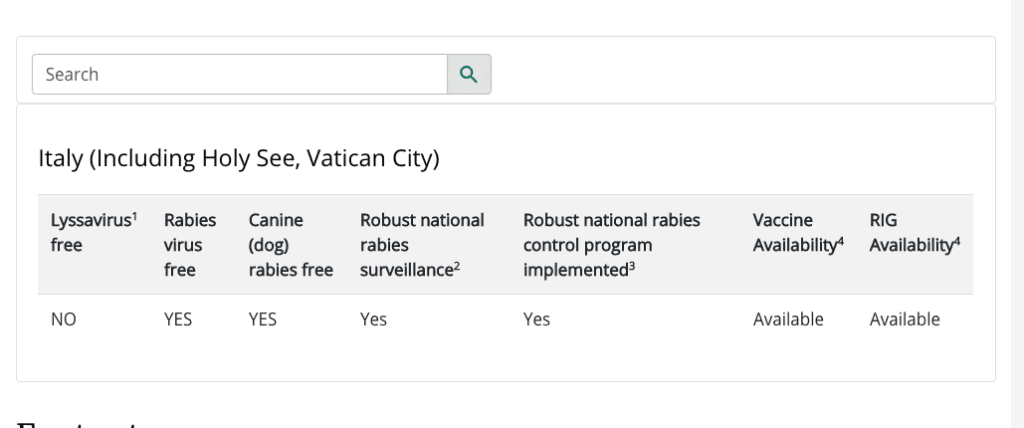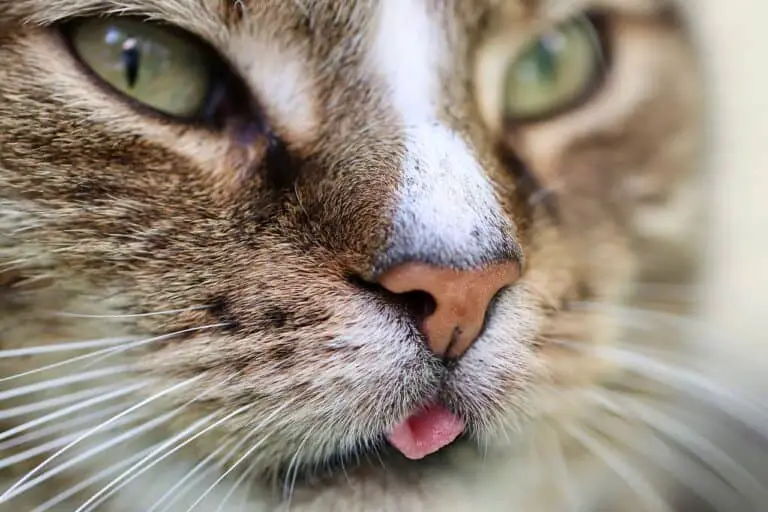WHAT ARE THE CHANCES OF GETTING RABIES FROM A CAT SCRATCH?
What are the chances of getting rabies from a cat scratch? There are tons of misinformation when it comes to rabies and cats. As a cat owner, you want to be sure that you are safe and your cat is fine. Non-cats owners could be concerned if they get scratched by a cat.
Rabies is transmitted by a rabid animal (an animal already effected by the virus) through a bite because of contact with the saliva. Direct contact with broken skin or mucous membranes in the eyes, nose, mouth, nerve tissues, or saliva is the common method of rabies transmission. A scratch normally is not contagious unless there are traces of saliva on it.
Let’s go over the details.

WHAT ARE THE CHANCES OF GETTING RABIES FROM A CAT SCRATCH?
Let’s put some order and some documented information on the subject. In this way, we can give a proper answer to what are the chances of getting rabies from a cat scratch.
Even though we document every sentence with the right sources in this article, remember that it is always imperative that you get to a hospital or doctor should you be scratched by a cat (if it is not your vaccinated cat) or another animal. Rabies is fatal after the symptoms come to view. Precaution is never enough in these cases.
Let’s establish a few firms stable data about rabies:
- The virus is transmitted through saliva and contact with the part of the body that contains the virus, with the victim open wounds or broken skin or membranes in the eyes or mouth. (Ref. Centers for Disease Control and Prevention)
- Symptoms can take a variety of time to show up. It is not the same in every case: The time period between contracting the disease and the start of symptoms is usually one to three months but can vary from less than one week to more than one year. (Ref. Wikipedia)
- Some countries are rabies-free, meaning that the virus is not present; therefore, getting rabies is near impossible. (I say near impossible and not impossible because, in life, one never knows, there is always the first case after so and so years, we do not want to be that case!) You should check your country to see if it is rabies-free. (Ref. Centers for Disease Control and Prevention)
CALCULATING YOUR CHANCES
Scratches normally do not transmit rabies unless the cats has licked his paws just before and somehow he licked his nails too. It is less probable, but it can happen.
Therefore in checking the chances that a cat scratch may have transmitted rabies, you have to evaluate the following:
- Do you know if the cat that scratched you is vaccinated? Or is he a stray cat?
- Are you in a rabies-free country?
Suppose it is your cat, you know if he got vaccinated. Or a cat that you know belongs to someone; the chances are that the cat is vaccinated; in any case, it is better to ask the owner. If you are in a rabies-free country, you can be reassured that the chances you just got rabies are down to 0.
However, as I said before, if you got scratched by a feral cat or a cat you never saw that looked really mad or salivating a lot, I would suggest taking a trip to the hospital and having the scratch checked cured.
HOW TO CHECK IF I LIVE IN A RABIES-FREE COUNTRY?
A website can tell you if a country is taking action against rabies and if that country is a rabies-free country. Fortunately, in many countries, cats are vaccinated when they are kittens. If you adopt a cat through a shelter, they are already vaccinated.
If you adopt a cat through a private person, make sure to vaccinate the cat as soon as possible. Big vaccination campaigns have made it possible for many countries to reduce and eliminate rabies in their territories. There are international rules when traveling with pets, about rabies vaccines and quarantines if necessary.
I thought those rules were really annoying when I had to travel from the US to Italy with my cats. I spent more money on their vaccine updates and medical certificates than the flight ticket!
But once I read what rabies does to people, it is way better to follow the rules that die from that disease.
To check if your country is rabies-free, go to this website: Centers for Disease Control and Prevention.
Once on the website, you have to insert the country you wish to check in the search bar. As you can see, it tells you the state of the country.

It is a simple as that.
WHAT IS RABIES?
Rabies is a viral infection of certain warm-blooded animals and is caused by a virus in the Rhabdoviridae family. It attacks the nervous system and, once symptoms develop, is 100% fatal in animals if left untreated. (Ref. John Hopkins Medicine)
In humans, once it develops symptoms, it is 99% fatal. It attacks the nervous system in humans too, and from the development of the symptoms to death, it goes pretty fast.
The rabies virus enters the body only via a cut in the skin or a scratch, eyes, or mouth. Once the infection hits the nervous system, it attacks the brains and other organs.
When an animal is infected, it bites another animal, and it transmits the virus through the infected saliva. Scratches by claws of rabid animals are also dangerous because these animals lick their claws.
I am trying to explain it plain and simple. If you want the full medical explanation, find it HERE.
RELATED QUESTIONS
Here some related questions and answers:
- How common is rabies in cats?
According to the CDC (Centers for Disease Control and Prevention), the number of rabid cats decreased by 12.7%, from 276 in 2017 to 241 in 2018. The percentage of cats tested for positive rabies (1.1%) was similar to that of the previous 5 years.
I am sure we are going to get new reports soon. But if you look, the chances to find a cat with rabies in the US is 1.1%. Fairly low, considering how many cats are in the US. Nowadays, cats get immediately vaccinated.
- Do cats have rabies in their claws?
Cats normally do not have rabies in their claws unless they have placed their own saliva in them. In this case, one can get rabies from a cat scratch. Some other viruses and bacteria can be under a cat claw. Therefore, not only rabies is the problem with a cat scratch. It is always better to wash the scratched and disinfect.
CONCLUSION
What are the chances of getting rabies from a cat scratch? As we saw, it depends on where you live, if the cat is vaccinated, if the cat got in contact with the saliva or other open would from another cat, etc.
I hope we were able to answer all your questions. If you have a question, leave it in the comments below.







